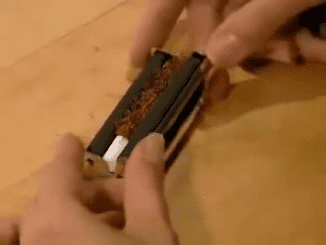Hanging your clothes outside to dry is a common practice, especially for those who love the fresh smell and energy-saving benefits. However, finding strange clusters or small round pellets attached to your laundry can be an unexpected and concerning sight. These pellets may be something more than just dirt or pollen — they could actually be the eggs of the lychee stink bug, a pest that can become a big problem if left unchecked. Here’s what you need to know to keep these pesky insects at bay and ensure your clothes stay fresh and clean.

Recognizing the Eggs of the Lychee Stink Bug
The lychee stink bug (Tessaratoma papillosa) is an invasive species known for damaging crops, particularly lychee trees. These bugs lay small, round eggs in clusters on plant surfaces and, sometimes, on items left outside, like clothing. The eggs are typically light-colored and can blend in with surfaces, making them easy to miss at first glance. Spotting these clusters on your clothes is a sign to take action.
What Are Stink Bugs and Why Are They a Problem?
Stink bugs, particularly the lychee stink bug, are notorious for the unpleasant odor they emit when threatened or crushed. This smell acts as a defense mechanism, deterring predators and alerting other bugs to potential danger. However, for homeowners, this odor can be persistent and unpleasant if stink bugs make their way indoors. While generally harmless to humans, stink bugs can damage plants and gardens, and they can become a nuisance if they start breeding near your home.
What Attracts Stink Bugs to Your Laundry?
Stink bugs are often drawn to warm surfaces and areas exposed to light. When clothes are left outside in the sun, they create a warm and inviting environment for these bugs, especially if your outdoor drying area is near gardens, orchards, or other vegetation that provides food sources for them. The smell of certain detergents or fabric softeners can also occasionally attract insects, making outdoor drying areas a potential hotspot for stink bugs to lay eggs.
Steps to Remove Stink Bug Eggs from Clothes
If you find clusters of stink bug eggs on your clothing, it’s crucial to address the issue before bringing the items indoors. Here’s how to safely remove stink bug eggs and prevent further infestation:
- Gently Brush Off the Eggs
Use a soft-bristled brush or a dry cloth to remove the eggs. Gently scrape them off, being careful not to crush the eggs, as this can release a smell that attracts more stink bugs. - Rinse Clothes in Cold Water
After removing visible eggs, rinse the clothing in cold water to ensure no remaining eggs or larvae are left behind. Avoid using hot water, as it can set the odor if any stink bugs were present. - Wash Clothes Indoors
Run your clothes through a regular wash cycle indoors to remove any remaining traces. Adding a few drops of lavender or peppermint essential oil can help repel insects from clean laundry. - Dry on High Heat (If Possible)
If the clothing is safe to tumble dry, use a high-heat setting to kill any potential remaining eggs or larvae that may have escaped rinsing.

Preventing Stink Bugs from Laying Eggs on Your Laundry
Now that you know how to handle stink bug eggs, it’s essential to take steps to prevent them from appearing in the first place. Here are a few tips for keeping stink bugs away from your outdoor drying area:
- Use Natural Deterrents Near Your Drying Area
Stink bugs dislike the scents of garlic, mint, and lavender. Consider placing sachets of these scents near your drying area or spraying a diluted essential oil solution around where you hang your laundry. - Keep Outdoor Areas Clean and Free of Debris
Stink bugs are attracted to gardens and vegetation. Regularly maintain your garden, remove any fallen fruit or leaves, and keep the area around your clothesline tidy. This reduces the chances of stink bugs venturing toward your laundry. - Hang Clothes in Shaded or Screened Areas
Since stink bugs are attracted to warmth, avoid hanging clothes in direct sunlight if possible. Opt for a shaded area or use a screened-in porch to dry clothes outdoors without exposing them to insects. - Inspect Clothes Before Bringing Them Indoors
Make it a habit to inspect each piece of clothing before taking it inside. Brush off any eggs, insects, or debris that might have settled on the fabric.
How to Handle a Stink Bug Infestation in Your Yard
If you frequently find stink bugs around your home or garden, it may be time to address the root of the problem. Here are some steps to help manage a stink bug population around your property:
- Seal Entry Points: Stink bugs enter homes through cracks and small openings. Inspect doors, windows, and siding, and seal any gaps to prevent them from making their way inside.
- Reduce Outdoor Lighting at Night: Since stink bugs are attracted to light, minimize outdoor lighting after dark, or switch to yellow-tinted lights, which are less attractive to insects.
- Plant Stink Bug Repellent Herbs: Consider adding mint, garlic, or lavender plants to your garden. These natural repellents can help keep stink bugs at bay and protect your yard from unwanted pests.
- Set Up Homemade Traps: A simple dish of soapy water under a light source can attract stink bugs at night, causing them to drown. This low-cost trap is effective for managing small stink bug populations.

Are Stink Bugs Dangerous to Humans?
While stink bugs are mostly harmless to humans and pets, they can become a nuisance. When threatened, they release an odor that lingers, and in rare cases, they may bite if mishandled, causing mild skin irritation. For those with allergies or sensitivities, this smell can be particularly unpleasant, making it essential to handle any potential infestations carefully.
Conclusion: Stay Vigilant with Outdoor Drying to Avoid Stink Bugs

Hanging clothes outdoors is a refreshing, eco-friendly way to dry laundry, but it does come with a few risks, like encountering stink bug eggs. By staying vigilant, checking clothes before bringing them inside, and employing natural deterrents, you can enjoy the benefits of outdoor drying without the hassle of unwanted insects. With a little bit of preparation, you can keep stink bugs at bay and ensure your clothes remain fresh, clean, and free from unwelcome guests.


